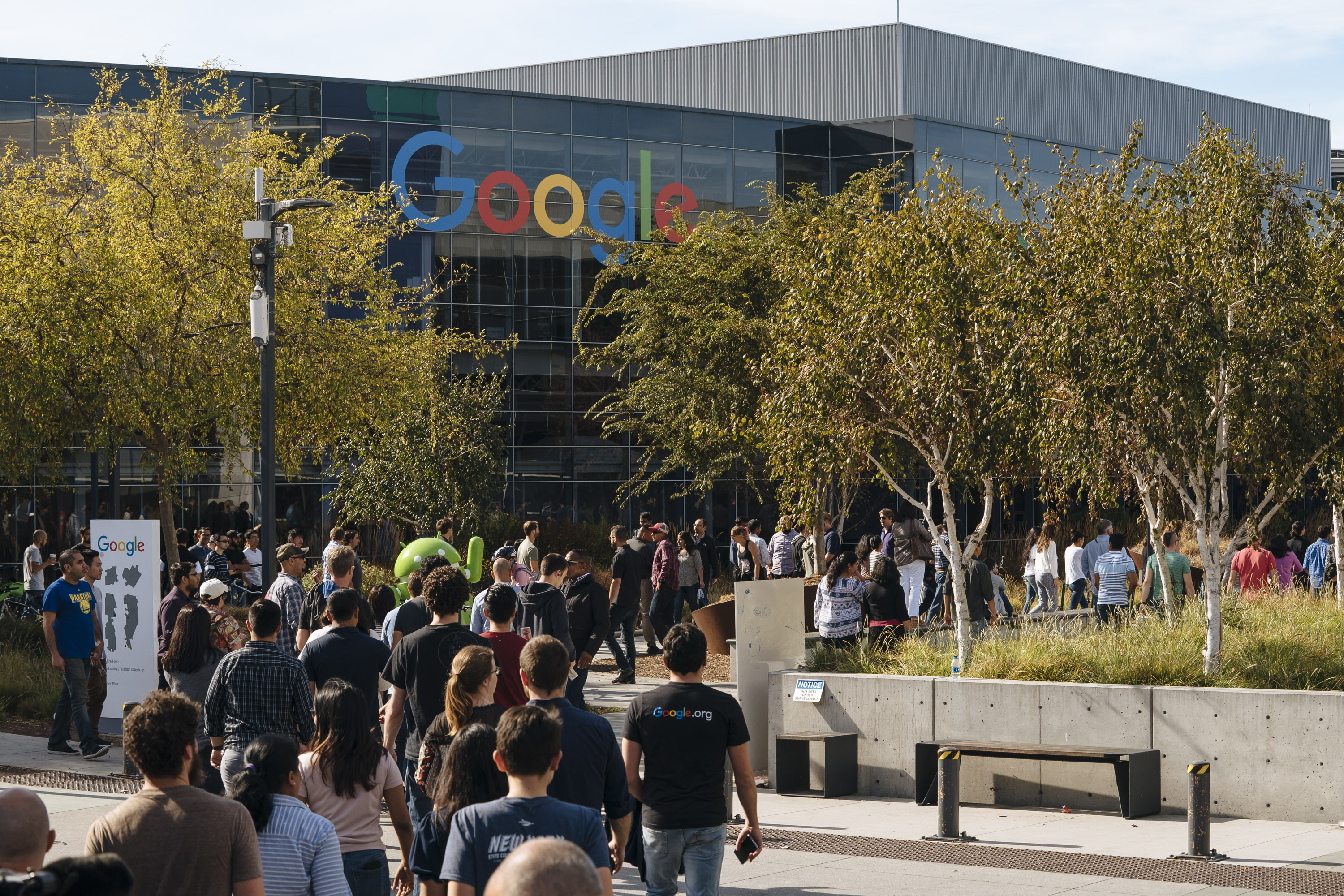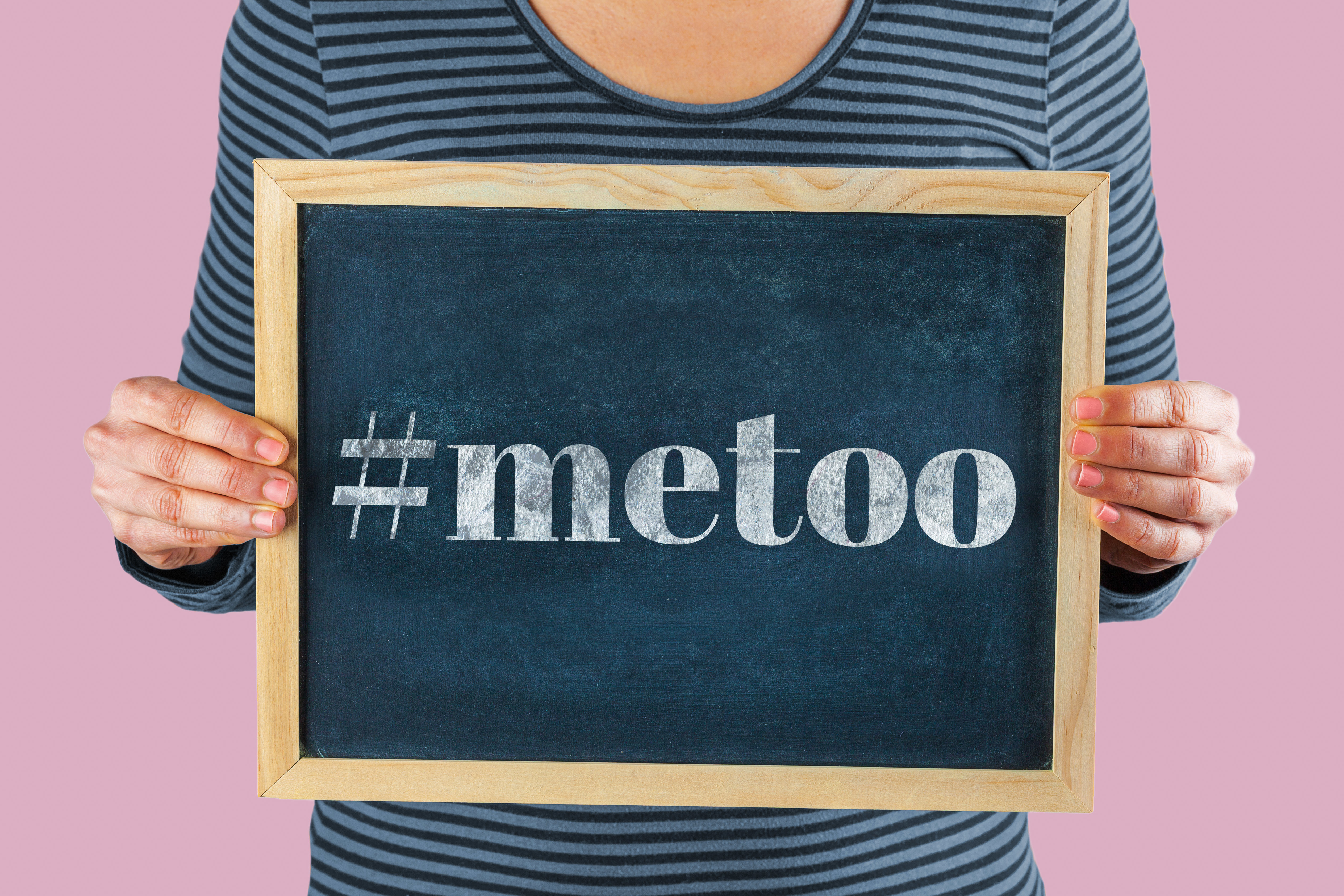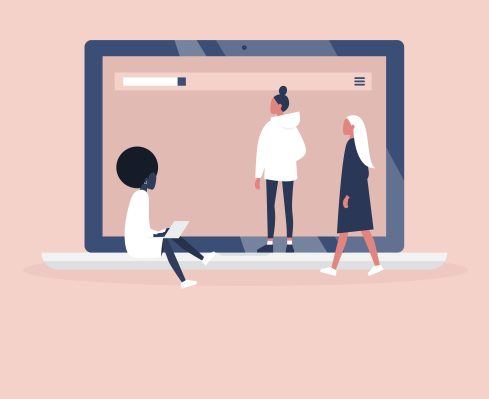Tech ethics can mean a lot of different things, but surely one of the most critical, unavoidable, and yet somehow still controversial propositions in the emerging field of ethics in technology is that tech should promote gender equality. But does it? And to the extent it does not, what (and who) needs to change?
In this second of a two-part interview “On The Internet of Women,” Harvard fellow and Logic magazine founder and editor Moira Weigel and I discuss the future of capitalism and its relationship to sex and tech; the place of ambivalence in feminist ethics; and Moira’s personal experiences with #MeToo.
Greg E.: There’s a relationship between technology and feminism, and technology and sexism for that matter. Then there’s a relationship between all of those things and capitalism. One of the underlying themes in your essay “The Internet of Women,” that I thought made it such a kind of, I’d call it a seminal essay, but that would be a silly term to use in this case…
Moira W.: I’ll take it.
Greg E.: One of the reasons I thought your essay should be required reading basic reading in tech ethics is that you argue we need to examine the degree to which sexism is a part of capitalism.
Moira W.: Yes.
Greg E.: Talk about that.
Moira W.: This is a big topic! Where to begin?
Capitalism, the social and economic system that emerged in Europe around the sixteenth century and that we still live under, has a profound relationship to histories of sexism and racism. It’s really important to recognize that sexism and racism themselves are historical phenomena.
They don’t exist in the same way in all places. They take on different forms at different times. I find that very hopeful to recognize, because it means they can change.
It’s really important not to get too pulled into the view that men have always hated women there will always be this war of the sexes that, best case scenario, gets temporarily resolved in the depressing truce of conventional heterosexuality. The conditions we live under are not the only possible conditions—they are not inevitable.
A fundamental Marxist insight is that capitalism necessarily involves exploitation. In order to grow, a company needs to pay people less for their work than that work is worth. Race and gender help make this process of exploitation seem natural.

Image via Getty Images / gremlin
Certain people are naturally inclined to do certain kinds of lower status and lower waged work, and why should anyone be paid much to do what comes naturally? And it just so happens that the kinds of work we value less are seen as more naturally “female.” This isn’t just about caring professions that have been coded female—nursing and teaching and so on, although it does include those.
In fact, the history of computer programming provides one of the best examples. In the early decades, when writing software was seen as rote work and lower status, it was mostly done by women. As Mar Hicks and other historians have shown, as the profession became more prestigious and more lucrative, women were very actively pushed out.
You even see this with specific coding languages. As more women learn, say, Javascript, it becomes seen as feminized—seen as less impressive or valuable than Python, a “softer” skill. This perception, that women have certain natural capacities that should be free or cheap, has a long history that overlaps with the history of capitalism. At some level, it is a byproduct of the rise of wage labor.
To a medieval farmer it would have made no sense to say that when his wife had their children who worked their farm, gave birth to them in labor, killed the chickens and cooked them, or did work around the house, that that wasn’t “work,” [but when he] took the chickens to the market to sell them, that was. Right?
A long line of feminist thinkers has drawn attention to this in different ways. One slogan from the 70s was, ‘whose work produces the worker?’ Women, but neither companies nor the state, who profit from this process, expect to pay for it.
Why am I saying all this? My point is: race and gender have been very useful historically for getting capitalism things for free—and for justifying that process. Of course, they’re also very useful for dividing exploited people against one another. So that a white male worker hates his black coworker, or his leeching wife, rather than his boss.
Greg E.: I want to ask more about this topic and technology; you are a publisher of Logic magazine which is one of the most interesting publications about technology that has come on the scene in the last few years.
You and the other editors say, in an introduction to one of Logic’s early issues, “We deserve a better conversation [about tech]. By we, we mean you, because everyone uses technology. We are all both its subject and object. Tech is how you find the place you live. It’s how you turn your car into a taxi or your spare room into a hotel.
Tech lets you see the faces of the people you love from thousands of miles away. It helps you buy clothes, and track the steps you take trying to fit into them. You use tech to order your dinner, find a date, or at least stream the video you masturbate to when you don’t have the energy to go out.”
How is tech capitalism the same or different around these issues of sexism? I ask because my assumptions are, one, unfortunately there’s a lot of the same sexism in the tech industry; and two, when we talk about technology, we’re often talking about capitalism, but we don’t necessarily need to be because nobody is saying technology would vanish under policies that were a little more socialistic.

Image via Getty Images / fizkes
Moira W.: Yes. People love to say like, “Oh, you say you’re a socialist but you use an iPhone.” As if that is some sort of “gotcha.” As if only completely unrestrained contemporary capitalism could give us the innovation of these technologies.
As the brilliant economist, Maria Mazzucato shows in her book on the subject, every single part of the iPhone comes from publicly funded research and development. The fiction that only an incubator startup model will give us major tech innovation is crazy. We didn’t get lasers from a bunch of kids with a whiteboard with the Post-Its on it! Sorry. It’s also not why Silicon Valley and DC are freaking out about tech competition with China right now—but that’s another topic.
Greg E.: You just said essentially capitalism steals labor as part of, I’m paraphrasing-
Moira W.: Yeah, capitalism can’t pay for what it takes. Look at the climate. Capitalism has to grow and to do that it has to take things for less money than they are worth…
Greg E.: So sexism, very much alongside racism, becomes a fundamental building block of what we know as capitalism today. The tech industry is in many ways driving capitalism today, but it envisions itself as transcending capitalism. How’s it doing on that and what would it actually look like for a tech industry to be less sexist and less exploitative?
Moira W.: That’s the million dollar question. [The answer] is to start with the first part of what you said: the idea that Silicon Valley is somehow something more spiritual, more utopian, that it’s somehow not part of capitalism. [That’s] been a very strong mythology in the United States, for a lot of reasons.
A very particular version of lefty progressive culture in the Bay area came mostly out of white hippies [and their] very personal vision of emancipation shaped the tech industry. [They believed] politics is freedom of individual consumer choices, rather than systems and infrastructures that make common life possible. This helped make possible this idea that technology is not itself political, that it could just be a platform for everyone to do what they wanted and of course, whatever you want to do is good, therefore it’s almost outside of politics.
[But] of course the [tech] industry is part of capitalism. It’s funded by capital that comes from Wall Street. It booms the way it does after 2008, because interest rates are low and so finance capital needs somewhere to go, and goes into venture and all kinds of startups. That’s part of the reason for the tech boom, or bubble depending on who you ask, that we’re currently in.
Many of these companies are traded on the stock market. As my co-editor Ben Tarnoff loves to say, the tech industry is no longer even a discrete industry. Tech is a layer of every industry. J.P. Morgan employs far more programmers than Facebook.
One thing I tried to talk about in the essay is the way in which our current platform economy, or “surveillance capitalism” economy, to use that phrase from Shoshana Zuboff, has opened up a whole new terrain of ways to get stuff for free that make a company rich. Facebook gets 2.2 billion people to do activities that contribute value to Facebook, for free. It’s really very brilliant. Much of that social media activity is feminized—like devalued activity always is.
Greg E.: Yes. Facebook gets billions of people to bake it digital cookies, as Kylie Jarrett says, right? That we are becoming “feminized” as we discussed earlier [in Part One], becoming “digital housewives.”
Moira W.: I think the bad cookie joke I have to take the blame for! But, yes, “digital housewife” is Jarrett’s phrase.
Greg E.: I like both very much. That’s a great metaphor for your entire piece, right? We’re all becoming digital housewives, baking cookies for Facebook and its friends, for better and for worse.
Moira W.: Yeah. Kylie Jarrett’s book, The Digital Housewife, talks about this paradox: that these platforms can be both sites for personal expression and creativity and all sorts of positive things, and also sites of exploitation.
I mean, they take a lot more value from us than they pay us for. She very usefully, I think, talks about how historically housework also has been both. I mean, caring for a family can also be both a side of agency and creativity and a side of exploitation. Anyway, people should read Jarrett’s book!

Image via Getty Images / Caiaimage / Adam Gault
Greg E.: I was on a panel at the Berkman Center about the movie The Cleaners. As we discussed: thousands of people contracting for a site like Facebook, primarily women and people of color who are doing the work that allows Facebook to exist without us basically storming the place and occupying it and tearing it down, which is moderating the most disturbing, most offensive content.
They’re being traumatized and underpaid. Well, isn’t it even adding insult to injury, literally, to then say “Oh, they’re not Facebook, they’re not tech. They’re just random people in a room somewhere”? I mean we sequester them specifically so that we can think of tech as, you know, just a dude with a hoodie.
Moira W.: Yeah. And it also reinforces this myth of tech as kind of magic. We talk so much about automation and things being technological.
Greg E.: The Wizard of Oz metaphor just really blossomed in my mind.
Moira W.: Pay no attention to all those post-traumatic stress syndromes having women and people of color behind the curtain! Who are taking away the murder and suicide videos so we can actually use this thing?
There’s a huge amount of human work involved [in tech]. By hiding it, we devalue that work and also continue to promote the fiction that these platforms automatically manage themselves when the content moderation is a huge issue.
One of the things I found coolest about the Google Walkout and what has happened since it, is how much the organizers have centered these labor issues and talked about TVC (temps, vendors, and contract workers) at the company needing to have the same kinds of protections against sexual harassment as full-time employees. As Bloomberg broke last fall, Google is over half temp, vendor, and contract workers.
It’s been really cool to watch the organizers of the Google Walkout insist whatever steps are taken to improve that problem at the company don’t only apply to full-time employees and don’t only apply to the most privileged workers, but apply to workers at every level. Sexual harassment is not some private, individual issue. It is the systemic problem that blocks women from access to jobs, power, and capital. And it cuts across class lines.

Image via Getty Images / Mason Trinca
Greg E.: At the end of “The Internet of Women,” you write, “The Internet is ambivalent. Fortunately, inhabiting ambivalence is something that women are good at, having had to practice it for so long.”
Could you say more about what you mean by ambivalence and why women have had to practice it for so long?
Moira W.: Part of why conversations [about MeToo] are so difficult and painful is because most women live among men. In heterosexuality, the call’s always coming from inside the house. Hi, it’s your husband, it’s your brother, it’s your son.
A lot of the anti-MeToo discourse was by mothers saying, “Oh, but what if my son…” The difficulties of that intimacy are real. As are the difficulties of negotiating these structural questions about power within personal relationships. People might joke on Twitter, “Men are trash,” or “Cancel men,” but I don’t think those are real answers to these problems.
Also: It’s really important to recognize that the system we’re criticizing is not just about particular bad men. It’s a system. I saw a friend tweet about this a while ago: He was recalling how, when he was a young child, after his sister died, he got teased relentlessly for being sad about it. Patriarchy is also the girls who make fun of young boys for crying on the bus.
Greg E.: Along the lines of things being complicated and ambivalent, I’m calling this series ‘Tech Agnostic,’ in that I’m not saying all tech should be destroyed any more than it should all be exalted. I’m agnostic about the whole thing. I’m ambivalent. And I actually wonder if part of the way forward, part of how we improve society around these issues, is for men to take on more ambivalence.
Moira W.: A big part of why we started Logic [was], so much techno-Utopian discourse says, “Technology is a solution to every problem.” And then conversely we saw a sort of skeptical discourse that said, “Technology can’t solve any problem.”
Greg E.: There’s a “dystopia beat.” Ben Collins at NBC lists that as his Twitter bio.
Moira W.: It has become a big beat, hasn’t it? Much bigger since Logic started, in 2016. We believe both of those narratives are un-useful, depoliticizing and not true. People also often say, is this or that tech executive evil or good? [But] if Mark Zuckerberg didn’t exist, we’d have to invent him. There would be someone else.
The productivity of ambivalence is that it opens up the way in which these are always complex negotiations. Tech is neither gonna save us nor could we ever do away with it. Monkeys become humans when they pick up stones and start to make tools. Right?
Making tools is a very fundamental aspect of what makes us human. At the deepest biological level we co-evolve with our technologies. So there’s no outside of that. There’s no Eden to go back to. And in that spirit, [rather] than to say, “Could we live without technology, or quit Facebook?”
… Well, maybe you should quit Facebook, but [even then] there’s no way to just get rid of [technology] because there’s no human without technology. That’s what being human is. We’re more interested in the question: How could you organize technology in ways that are more democratic and more just?

Image via Getty Images / Giii
Technology is a common infrastructure we make and use together and should find ways to govern and control together. By the way, many of the conversations we have now, we had in different versions around trains in the 19th century; a very important network technology totally reorganizes many aspects of human relations. Certainly the steam engine totally reorganizes the economy. So did cars and telephones.
There’s no Eden. There’s no going back. And so staying with the trouble means we need to work with the tools we have and find ways to make the control over them more equitable and democratic. Try to find ways they can serve as infrastructures of a more just world. Make life freer and better for more people, be tools of liberation rather than oppression.
I like that ambivalence is part of a long feminist tradition of appropriating tools that were made for other purposes. Neither the Messianic narrative nor the dystopian narrative is useful. Because you get rid of Elon Musk, and then who is it? Some other guy.
It’s not a question of this person is evil, get rid of them. These are systemic questions, there’s no outside. So we’ve got to find ways to make a better world with the tools we have.
Greg E.: Beautifully said.
One last topic. I’m not going to ask you to tell anything about your own Me Too story, though I will mention that in “The Internet of Women,” you do talk vulnerably and eloquently about it, or at least talk about your experience of figuring out that you fit into this movement of Me Too.
I would like to offer you an opportunity, if you want, to share what it was like to put something like that into writing at this time. Also, that essay was written about a year ago: where are we now with regard to that cultural moment, versus a year ago?
Moira W.: Well, as for the the first question, I liked the way Me Too as a hashtag allowed people to affirm solidarity, affirm that something that had happened to them, that led them to belong to a collectivity, without being forced to produce that kind of titillating first-person narrative that we’re often forced into.
I’d felt so conflicted about the wave of writing and pop culture discourse we’d had about sexual assault on college campuses, starting in 2011 or so.
On the one hand, it was very useful to have a sharing of narratives about these difficult experiences. On the other hand, there was also something that often felt very prurient and exploitative about it: usually pretty, young, white cis-hetero women telling us in great, even pornographic, detail about these abuses that had happened to them.
Particularly when they’re getting paid 150 bucks to do that for Bustle, or some digital platform that will tag them with their history and make it findable on the Internet forever. I sometimes felt that there was something a bit distasteful—and more importantly, exploitative.
A funny thing about experiences of gendered abuse or violence, at least seen from this political context: it happens to you personally and it’s very personal. But also, in some ways, it’s so not personal. It’s so not about you. It’s about him; it’s about living within patriarchy as a system.

Image via Getty Images / Tsvi Braverman / EyeEm
MeToo as a hashtag made it very clear that what we are talking about is the fact that it happened to all these people. It’s an interesting way to negotiate this problem of, how do you deal with your own hurt or damage or trauma or negative experience or vulnerability? Without also having to turn that into a major source of your identity.
Because that was something I found very oppressive about the personal essay form, like, ‘wait, is this supposed to become the main thing about you now?’ Me Too created this opportunity for people to affirm a shared experience without individualizing it and personalizing it having to put everything out there if they didn’t want to… although there are many people who very bravely did tell their stories in public. And we can be grateful to those people.
Greg E.: Has MeToo helped the situation? Has it brought about positive social change?
Moira W.: Has it helped things materially, structurally? There’s a slogan ‘wages for housework’ from the ’70s. In the past year, I’ve been like, I want wages for all the hours we have had to spend dealing with the bad men.
But anyway, does it make things better? I don’t know. From a pessimistic point of view, you could look at Me Too and say, “All that did was make a lot of money for Facebook and Twitter and the people who own them.”
But I think it has helped and I think it’s just the beginning. I’m doing an event here next week with this amazing Chinese feminist Lü Pin, who started the first Chinese feminist magazine in 2009. It was really big and they did a lot of organizing with the Feminist Five.
Those women were put in jail a few years ago. And then funnily, when they started to have Me Too content, Lü Pin woke up and the entire thing was scrubbed from the Chinese Internet. So it clearly poses a real threat to power.
I think it’s the beginning of something. For MeToo to become politically powerful we have to find ways to move from telling personal stories, which is an important part of the process, to building political power that can actually change systems. People do not tend to cede power voluntarily. And these are questions of power.
Part of what’s so impersonal about sexual harassment is that it really is about, who does the street belong to? Who can take for granted that they’re allowed to be on the street and do what they want on the street? Who does the company belong to? Who can come to schmoozy drinks where people are going to make deals, and who has to feel at the mercy of some more senior person at those drinks? So it’s an important first step.
It’s been productive for highlighting the systemic aspects of the problem and for galvanizing people to find new strategies to deal with them. And again, the Google Walkout and [related] labor actions are really promising signs of ways to actually deal with sexism. Not just asking the boss nicely not to treat you badly in the future.

Photo by AP Photo/Bebeto Matthews
Greg E.: the last question I’m asking at the end of all my interviews: how optimistic are you about our shared human future?
Moira W.: To quote James Baldwin, I’m an optimist because I’m alive. To be a pessimist is to treat life as a purely academic matter. Look, there’s a lot of reasons to be very pessimistic, but I just don’t see it as an option. I think that it’s important to be realistic, but I think that these incredibly powerful tools that have been built, just have to be sort of re-appropriated and re-organized.
There’s a lot of potential in the tools that we have, and a lot of potential to develop better digital and technological tools too, if they weren’t having to be developed to maximize returns to venture capitalists on the shortest timeframe possible.
Greg E.: Moira, you’ve been extraordinarily generous with your time, your energy, your work, and your wisdom.
